One of the first pieces of equipment any musician acquires is typically some kind of instructional book. Whether you are an experienced professional, or just starting, this book will serve as a major tool in learning everything from taking care of your instrument to playing your first song.
Want to learn the basics of playing a percussion instrument, brush up on things you may have forgotten, or continue adding on to the level you are already at? Then a good method book is just what you need.
Continue reading to learn the differences between the many books on the market today.
Why You Should Trust Us
I have used musical method books since I was very young, first as a student, and now as a teacher as well. And I have found that some books definitely are better than others, especially at different stages of learning.
Before I studied and researched every book I could find that teaches drum method, I talked to two teachers, two professional drummers, and one parent with young children learning percussion. Each of them helped me identify possible concerns and questions, along with tips and ideas for picking the best book.
Each of them helped me identify possible concerns and questions, along with tips and ideas for picking the best book.
How to Choose the Best Method Book for You
Percussion musicians at different levels and with varying amounts of musical background and the end goals and purposes for each musician range all over the place. There isn’t one right answer for everyone, more of just some basic guidelines to keep in mind.
Simply understanding what your book will be used for and your own personal preferences will be the biggest step in finding a great book. We have included our recommendations for each level of players.
Beginning Students
Some books are intended for self-instruction as you learn and practice on your own, while others are more fit to be used with instruction from a teacher. Check with your instructor if you are going that route to see what books they use.
To teach yourself, look at how much explanation is given for each new idea. Without an instructor to give more details to help you understand or to answer any questions that come up, a thorough method book will be a crucial part of your education.
In addition, if you have already decided on a specific instrument that you want to play and focus on, like the snare drum or timpani, make sure that the book you pick has plenty of information and practice exercises for you to work on with that instrument instead of just a short overview of it.
Advanced Students
By now you have probably already used a method book in the past. Now you know how to play and read music, so you can move on to the next book in the series you started with if there is one, or find something new if you did not like the way your beginner book was set up.
Continuing to learn and practice will give you the step up that you need to reach your potential.
After learning the basic techniques that are mostly universal to percussion, you might feel ready to pursue the techniques more particular to the style of music you want to play. You can find books that are written specifically for one type of music and has pieces of music in that style to perform.
Professionals
Although you obviously already have quite a lot of knowledge about your instrument and how to play it, there is always more to learn right?
Finding a great beginner book that really delves in deep in the basics can be instrumental to even professionals, as building and adding to your foundation and core principals helps you be more prepared for and understand more complex concepts much easier.
Taking the time to build up and practice these simple first steps, even after years of playing, will be worth it when you move on to something more difficult.
On the other hand, it is also very beneficial to find new material to learn. Challenging yourself with more difficult lessons will help you progress in skill and add new styles to your repertoire.
Teachers
Since you are likely not just shopping for one individual, but many students or a group, it is important to be prepared for different kinds of learners at different levels. You may want a series of books to place each musician at the appropriate starting point for them, with levels to advance to as your student’s progress.
For band or orchestra directors, remember that as a whole, your band or orchestra will eventually all be playing together. You will need to have songs and lessons not just geared to the development of your percussion section, but to teach the entire group to work together and achieve the highest level they can as a whole.
Many books for drums and other percussion instruments come in series with corresponding books available for other instruments. These books will have lessons designed to help everyone move at a similar pace and will include songs that they can play together as they each learn their own part.
You can find books to use with pupils in the classroom, as a homework reinforcement to class time, or to search for techniques to brush up on your own skills before playing.
Everyone Else
Think about how you learn best. Knowing what senses to involve in your learning for the best results will help you choose the type of instruction to look for.
- Do you learn by hearing something and copying what you heard someone else play?
- Is it easier to understand main concepts if you can see it visually and look at a picture or chart of some kind?
- Do you need to watch someone else show you how to do something new, or guide your hands and feet as you try it?
- Would you rather just get a list of all the facts and study from those?
- Or is it a combination of senses that really turns your brain on and helps things click together?
These are important insights to how you learn best. Many instructional books have a combination of colors, pictures, words, directions for your teacher, and even cd’s or DVDs to use as well. However, each book will place different emphasis on certain learning styles or included different combinations than others.
Another important aspect for musicians at any level is the pace at which you intend to move forward. While some people may catch on quickly, others need extra time to figure out what to do.
And yet, on either side, moving as fast as you feel able to might not be the most appropriate path if you are serious about mastering each skill you learn, and have the time available to do so. Again, speed is a very individual plan to each player or group.
With this in mind, you know what you want to learn or teach to your students best. Anyone can bang on a drum or hit a triangle, but a real musician must take the time to learn and understand.
This will only be accomplished with the best resources and correct information, along with lots of practice and application. Regardless of the many approaches to learning and your personal needs, there are many books to assist you as you get started.
The Competition
After hours of testing and research, here's the final competition.
| Instrument | Rating | Current Pricing |
|---|---|---|
4-Way Coordination | One of my favorite parts about this book is that it can be used without any equipment |  |
Start Playing Drums | It allows the learner to easily set their own pace because most adults will know their own needs and abilities and can decide how fast it is best for them to go |  |
Alfred’s Kids Drum Course | Comes with a CD that goes along with instruction |  |
Standard of Excellence, Books 1, 2, & 3 | There are three sets of books that start at the very beginning and become more challenging with each book |  |
Advanced Techniques for the Modern Drummer | This is an in-depth resource that really works on mastery of your technique |  |
For Band and Orchestra | It is great for getting a solid foundation and obviously, preparing to play with a band or orchestra |  |
Alfred Accent on Achievement | Work really well for teachers and for younger students, with 3 levels of books and complete with CD |  |
Our Top Picks
Professional’s Choice: 4-Way Coordination

Credit: Alfred Music
4-Way Coordination: A Method Book for the Development of Complete Independence on the Drum Set is a popular choice with many advanced and more serious percussionists.
The focus of the book is on developing excellent hand dexterity and the importance of the complete independence of both hands and feet. This book thoroughly guides the student from simple patterns to advanced polyrhythms, teaching speed, off-hand development, sight-reading, control, and fluidity.
One of my favorite parts about this book is that it can be used without any equipment. All you need to learn the material in 4-Way Coordination are hands and feet, which means that you could be practicing on a long car trip, while waiting for someone, or anywhere else you would not have equipment set up to use.
Even children can use this book if they are genuinely interested in learning this skill and dedicated to practicing. One band teacher suggested using this book for students, in addition to a more typical classroom-type book, and color-coding left and right sides for younger students.
For the most part, this is a more difficult and challenging book than most, but also very rewarding. The downsides of this book are that it doesn’t include any really groovy, just-for-fun type of songs or beats and that it only teaches drum techniques, without any other percussion instruments.
This book can be purchased here.
Adult Beginner’s Choice: Start Playing Drums

Credit: Amazon.com
Start Playing Drums: A New Method Book Designed for Adults has a lot of great features for older beginners, just like it is created for. This book focusses on playing music, not just notes so you can get started with songs and on your way to playing with other musicians and stay more interested as you have fun making music.
The notation system taught is easy and makes the student’s transition to staff notation much easier. One of the greatest details of this option is that it allows the learner to easily set their own pace because most adults will know their own needs and abilities and can decide how fast it is best for them to go.
This is a great pick for teaching yourself to play, very clear and simple.
This book can be purchased here.
Children’s Choice: Alfred’s Kids Drum Course

Credit: Amazon.com
Obviously, this choice is geared to appeal mostly to young children, and includes more fun than other books. Designed for Elementary ages, Alfred’s Kids Drum Course: The Easiest Drumset Method Ever comes in full color and with lots of illustrations.
This selection comes with a CD that goes along with instruction. And animal characters like an alligator, a dog, and a cat are used to keep their attention better and relate to the kids.
It is a great introduction for the youngest of learners to cover the basics and all the important parts of percussion, allowing them to become familiar with the instrument and build a positive attitude toward music. Each page is made simple with easy highlights of the most important information to remember.
Still, be aware that this course has very short, fast-paced lessons that do not go into much depth. This could be an advantage if the child has a very short attention span or if you just want to help them focus on having fun and becoming more interested in learning more later.
But it could also be a disadvantage for other beginners since they probably wouldn’t become very good at one thing before moving on to the next idea.
The only other complaint for this kid’s course is that there are no songs to play with it, often a favorite part of learning. If you do want songs to play, it could be used in conjunction with another book. It could also be a used as an easy review for children who have already started.
This book can be purchased here.
Teacher’s Choice: Standard of Excellence, Books 1, 2, & 3

Credit: Amazon.com
The Standard of Excellence Drums and Mallet Percussion and the Standard of Excellence Timpani/Auxiliary Percussion Series is our number one pick for group method books. There are three sets of books that start at the very beginning and become more challenging with each book.
With both sets, percussionists would have a great start to learning about all the main instruments they will be using. A wide variety of topics including, music theory, music history, ear training, listening composition, improvisation, interdisciplinary, and multicultural studies are used throughout the books.
Then, it is easy enough to feel achievable, yet challenging as you move to each new section, and progresses well, allowing plenty of time to comprehend the material without losing interest.
Since it is produced with corresponding lesson books for other instruments and has progressing levels, it works well for bands and groups to use. This is really helpful for finding pieces to play as a band in class and for concerts.
Not only does it work well for groups because of the other Standard of Excellence books available, but also because they come with cd’s to reach the learning styles of a wide range of students.
Despite it not being too childish or overly simplified, it is directed more toward children and young band students, so may not be a good fit for an adult learner. Yet overall, this is a great selection for novices to start with and teachers to use with a variety of their students.
This book can be purchased here or here.
Other Books to Consider:
Advanced Techniques for the Modern Drummer

Credit: Amazon.com
This is an in-depth resource that really works on mastery of your technique. Following these exercises will build independence and coordination, sticking, power, speed, and endurance abilities.
Anyone struggling with left hand (or non-dominant hand) development would benefit from using this book and practicing what is taught here.
Ideas are related in a musical context, which makes the information more useful rather than just something complicated you know how to do but never use in your music.
It’s an excellent way to work on your own creative expression and style. And, although it is more jazz-oriented, it is valuable and fitting for all styles of music too. This book can be purchased here.
Drum Method: For Band and Orchestra

Credit: Amazon.com
Drum Method covers everything from care and maintenance of the instrument to time figures. It is great for getting a solid foundation and obviously, preparing to play with a band or orchestra.
It is set up well for teachers with bigger groups. There is a moderate speed of progression, following a very natural pace as you move on through the book. The fundamentals covered are just what every aspiring percussionist needs to know for basic, everyday playing.
This book can be purchased here.
Alfred Accent on Achievement

Credit: Amazon.com
The Alfred Accent on Achievement for Combined Percussion is another series of books that work really well for teachers and for younger students, with 3 levels of books and complete with CDs.
One of the best parts of these books is that they really target remembering what you learn. The pages are colorful, interesting and stimulating, particularly for the target audience of 5-8 grade students.
It does progress quite quickly through all the material including, rhythms and rest exercises, chorales, scale exercises, lip slur exercises, and even full band arrangements.
There are a lot of songs and drills to use for practice, and everyone knows that practice is a big key factor in becoming a great musician. For teachers, there are exercises on the bottom of the pages that make good homework and practice assignments.
Another advantage of this book is the way it is set up for teachers to start new students and the simple, easy-to-use design makes it a good option for self-taught beginners as well. This book can be purchased here.
Sources
- Watkins, K. (2011). An Analysis of Select Beginning Band Method Books and the Level to which They Address the National Standards for Music Education. Retrieved from https://etd.ohiolink.edu/!etd.send_file?accession=osu1305725408&disposition=inline
- Ingkavet, A. (13 January, 2016). Why Most Music Method Books are Not Good. Music Teacher’s Helper. Retrieved from http://blog.musicteachershelper.com/why-most-music-method-books-suck/

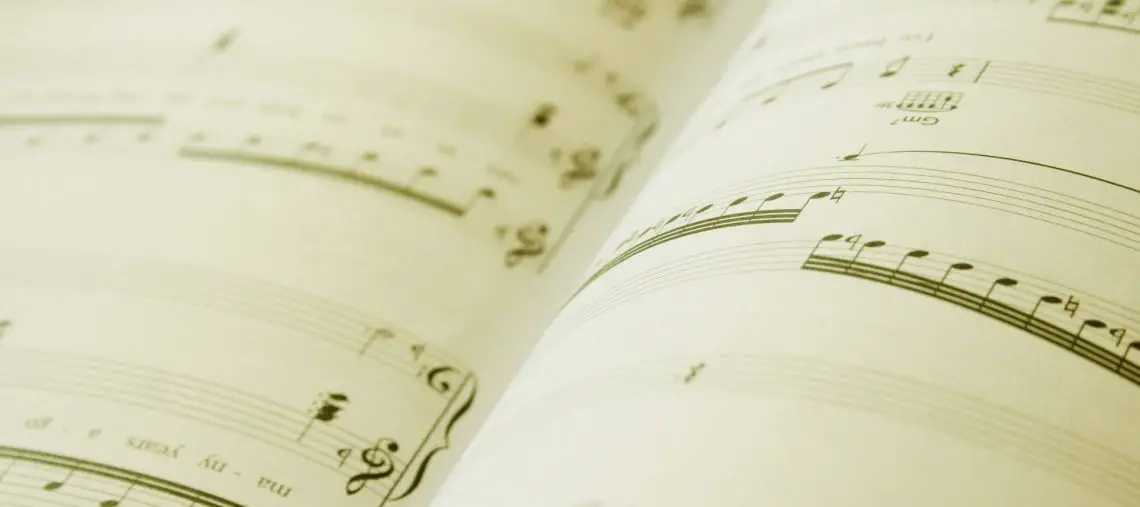
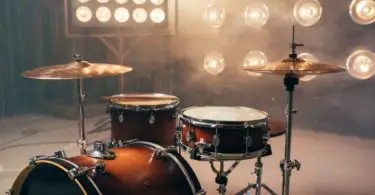

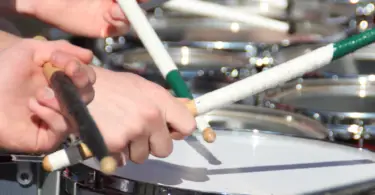
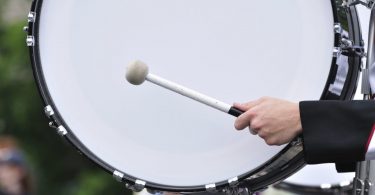
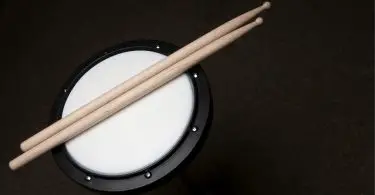
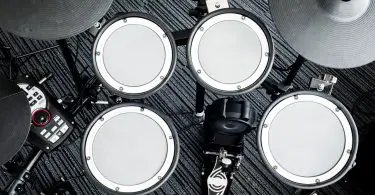
Start the discussion at talk.hearthemusicplay.com